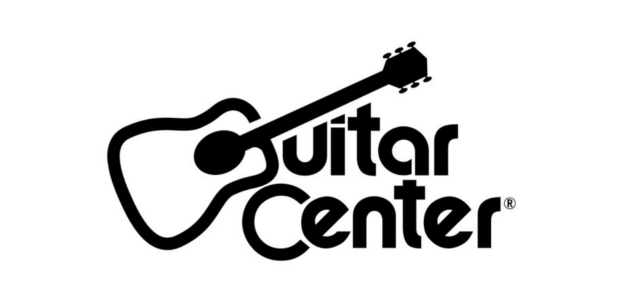
Editor’s Note: Each year, when the music products trade press convenes for Guitar Center’s Media Day program, editors like me gain insight into GC’s strategic planning and the company’s vision of itself. Many of you—our small, mom-and-pop, brick-and-mortar-retailer readers—perceive GC as an 800-pound gorilla that’s stomping out your profits. During Media Day, though, the mega-chain’s executives lay out a case that its investments, initiatives and programs serve to grow the industry broadly…to nurture and create more music makers. Every dollar GC spends to promote making music, they say, redounds not only to its benefit, but also to yours.
Did a Guitar Center location just move into your community? See Guitar Center advertising everywhere you look? Your natural instinct might be to get jittery…even upset. But, before you do, hear GC out. Then, let me know what you think (dferrisi@testa.com).
In recent years, cultural conversation about purpose-driven companies has grown exponentially. The idea that companies ought to be built around something more meaningful than just dollars and cents has been written about, talked about and acted upon. A Google search of the term “purpose-driven business” returns a multitude of articles and essays that link purpose to becoming a preferred employer and to driving business success. It’s an evolution that has been demanded both by employees and by consumers. It’s hard to argue with as a human, and it’s increasingly dangerous to ignore as a businessperson. The days of it being acceptable not to be able to describe why the world is better off because your company exists are rapidly nearing an end. I believe that’s a really good thing.
For some product categories, the shift is natural. For others, it’s a stretch. Every day, we see examples of companies that thrive by focusing on a broader purpose. On the other hand, we see equally as many examples of companies for which it seems forced or disingenuous to declare a drive for the common good. One of my favorite lines from the hit HBO series “Silicon Valley” makes light of that trend: A tech company CEO declares, “I don’t want to live in a world where someone else makes the world a better place better than we do.”
Although clearly satirical in nature, the line does a wonderful job of bringing out the perceived tension in this movement. How can an organization simultaneously be driven by making the world a better place and by aggressively playing to win in a competitive marketplace? That question is particularly important to us at Guitar Center.
We’ve been doing a lot of work lately to define a strategy that is both rooted in purpose and that positions us for continued growth. In our case, we are fortunate to be part of a business whose products add so much to the world. We are a company built by, and in service of, musicians. Our team is largely made up of musicians, and we have spent meaningful time doing research to understand our customers’ needs.
After years of getting to know our customers, one commonality emerged: Whether they play once a day, once a month or once a year, most musicians have a deep desire to play more. Our research has furthered our admiration for the tremendous passion that music makers have. At the same time, it’s opened our eyes to just how many people yearn to play more than they currently do, and it’s made us aware of the barriers that keep them from doing so. Those realizations led us to a core belief that there is simply no such thing as too much music.
Every note that enters the world makes things better. And, unlike many things in life that are best practiced in moderation, music has no point of diminishing returns. Because we at Guitar Center truly believe that, we are aligning around a purpose and mission to fill the world with music. We believe it’s the kind of goal that is audacious enough to feel almost impossible, yet it’s inspiring enough to feel not quite impossible. It’s a purpose that will serve as our north star as we move our business forward, and it’ll heavily influence the decisions that we make.
It’s why we’ll continue to grow our lessons program and other services for musicians. It’s why we’ll work tirelessly to create tools and content that inspire people, and help more of them make more music. It’s why we’ll continue to provide instruments and other resources to programs that promote education and that will inspire the musicians of the future. It’s why we believe we’re just scratching the surface of the impact we can have.
At the same time, the scale at which we pursue our vision raises a fairly common question about our intentions: Is Guitar Center trying to grow by intentionally putting smaller music retailers out of business? The answer is no.
One of the elements most central to our strategy is rooted in the idea that we can significantly grow the overall market of music makers and music making. As the biggest provider of musical instruments in a world in which so many musicians wish to play more music, we believe there is a tremendous opportunity. We invest more than any other company to promote the musical instrument business, and we believe that our efforts to increase engagement through instruction, content creation and other musician services will not only grow our business, but also grow others’ business.
That is not to say that we are not competing to win. We are inspired every day by other music retailers, both large and small. They motivate us to make our strengths stronger and to improve upon our weaknesses. We hope we do the same for them.
So, yes, we’re big. And we believe our size should help musicians to fill the world with music. So, we’ll keep working to get bigger. And we’ll do it on purpose.
Frank Crowson is Senior Vice President, Marketing, for Guitar Center.


